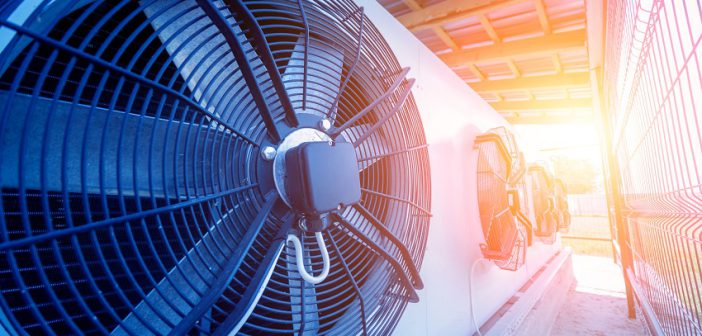As the seasons change, it is common to switch frequently between heating and air conditioning. However, this constant transition can be a strain on your HVAC system, leading to higher energy bills and potential breakdowns. To help you avoid these problems, we’ve put together some helpful tips for switching from heat to air conditioning. Keep reading to learn more.
Allow the unit to cycle completely off.
Switching from heating to air conditioning frequently is a common practice, especially during transitional periods when the weather is unpredictable. However, frequent switching can put a strain on your HVAC system and cause unnecessary wear and tear on its components. One of the most important tips to keep in mind while switching between heating and air conditioning is to allow the unit to cycle off completely and wait five minutes before making the switch.
When you switch off your heating or air conditioning unit, make sure to give it a few minutes to cycle off completely. This will allow the unit to shut down properly and prevent any residual heat or cold air from lingering inside the system. Additionally, waiting five minutes allows the equipment refrigerant to return to its starting pressure. If you switch it back on too soon, the high pressure can cause your compressor to lock up and trip a circuit breaker.
Additionally, allowing your HVAC system to cycle off completely before switching modes can help keep your unit running more efficiently and prevent unnecessary wear and tear on its components. This can save you money in the long run by reducing the need for repairs and by extending the life of your HVAC system. By following this simple tip, you can ensure that your HVAC system operates smoothly and efficiently, no matter the season.
Adjust temperature settings in small increments.
While it is tempting to use both your AC and heat simultaneously during the season transition, this could put your HVAC system under strain, causing it to work harder and more frequently. As a result, this could lead to higher energy bills and potentially expensive repairs. Instead of causing your HVAC system to do double duty, try adjusting the temperature by a few degrees at a time until you find the perfect balance.
By using this method, you give your HVAC system the time it needs to adjust to the constant temperature change without overworking it. This is known as temperature staging, where the indoor temperature is gradually raised or lowered by a few degrees over an extended period, allowing the HVAC system to operate more efficiently.
Consider using a smart thermostat.
If you live in an area that experiences frequent temperature fluctuations, a more efficient way of maintaining a comfortable temperature in your home is by using a smart thermostat. These devices allow you to program your heating and cooling settings in advance, so you never have to worry about adjusting them manually. Many smart thermostats can even learn your behavior over time and make adjustments automatically, saving you even more hassle.
When selecting a smart thermostat, be sure to choose one that’s compatible with your heating and cooling system. Some models only work with certain types of systems, so it’s important to do some research before making a purchase. Once you’ve installed your thermostat, take some time to explore its features and set up a schedule that works for you. For example, you might program the thermostat to turn on the air conditioning when the temperature hits a certain threshold during the day and then switch to heating when the temperature dips at night.
Overall, it is crucial to follow the necessary tips for switching from heating to air conditioning frequently. It not only helps in saving energy costs but also promotes the proper functioning and longevity of the HVAC system. By maintaining a consistent temperature, avoiding abrupt temperature changes, and ensuring regular maintenance, one can ensure a comfortable and healthy indoor environment while keeping utility bills under control.





Yeah, a smart thermostat is actually a good thing! To program it correctly, you can use these cooling and heating schedule samples: https://www.dashservice.com/save-energy.
A smart thermostat is a good thing and every homeowner should consider installing it. But remember that thermostat installation requires an electrician’s expertise. So, don’t neglect to hire a licensed electrician. Even if you find a DIY article or video online, the risk to your health or home isn’t worth it when dealing with electrical wiring.
GET RICH WITH BLANK ATM CARD, Whatsapp: +18033921735
I want to testify about Dark Web blank atm cards which can withdraw money from any atm machines around the world. I was very poor before and have no job. I saw so many testimony about how Dark Web Cyber hackers send them the atm blank card and use it to collect money in any atm machine and become rich I email them also and they sent me the blank atm card. I have use it to get 500,000 dollars. withdraw the maximum of 5,000 USD daily. Dark Web is giving out the card just to help the poor. Hack and take money directly from any atm machine vault with the use of atm programmed card which runs in automatic mode.
You can also contact them for the service below
* Western Union/MoneyGram Transfer
* Bank Transfer
* PayPal / Skrill Transfer
* Crypto Mining
* CashApp Transfer
* Bitcoin Loans
* Recover Stolen/Missing Crypto/Funds/Assets
Email: darkwebonlinehackers @ gmail . com
Text & Call or WhatsApp: +18033921735
In this situation it is really important to find real specialist who will be helping with it.
If your appliance has stopped working, or if it’s just broken, you probably want to fix it. But how do you repair an appliance? Well, there are many ways you can go about doing this, but https://calgary-appliance.com/ will give you a good overview of the different professionals of appliance repair and why they’re used.
Thank you!
I also want to share the most common heating, cooling, and HVAC myths: https://happyhiller.com/blog/heating-cooling-mythtakes-hvac-myths/. Hopefully, your readers will find it helpful and stop making that mistakes.
Thanks for the tips! I only want to add that it’s important to check your HVAC system as the seasons change.
Before summer arrives, remember to maintain your AC by replacing the filters, cleaning the coils, and unclogging the condensate drain tube. Here’s why it’s important to do: https://www.aceplumbingsc.com/why-should-you-get-ac-maintenance-before-the-summer/
Very informative post. By the way, I was reading about air cooled heat exchanger, and while searching for it on Google, I accidentally click on your post. If you have any website where I can find information regarding air-cooled heat exchanger then please let me know.
Thank you for sharing these valuable tips for transitioning from heating to air conditioning. As someone who has experienced the challenges of this seasonal switch, I greatly appreciate the advice you’ve provided.
HVAC maintenance systems are crucial for both comfort and energy efficiency. Gradually adjusting the temperature and ensuring proper maintenance, such as cleaning filters and sealing air leaks, are practical steps that can make a noticeable difference in our cooling experience.
Additionally, your suggestion to take advantage of natural ventilation during cooler parts of the day is a great way to decrease reliance on the AC and allow fresh air into our spaces.
Overall, these tips are practical, cost-effective, and eco-friendly. I will definitely keep them in mind as I transition from heating to air conditioning this season. Thank you for sharing your expertise and helping us all make the most of our HVAC systems.
Great tips for transitioning from heating to air conditioning! As someone who frequently switches between the two, I understand the importance of a smooth transition. Cleaning and HVAC maintenance unit is essential for optimal performance, and gradually adjusting the temperature allows for a comfortable shift. Utilizing ceiling fans and sealing air leaks are smart strategies to enhance cooling efficiency. Programmable thermostats offer convenience and energy savings, while natural ventilation and using blinds or curtains can help regulate temperature and reduce reliance on the AC. Following these tips will not only ensure a comfortable environment but also contribute to energy conservation and cost savings. Thanks for sharing these valuable insights!